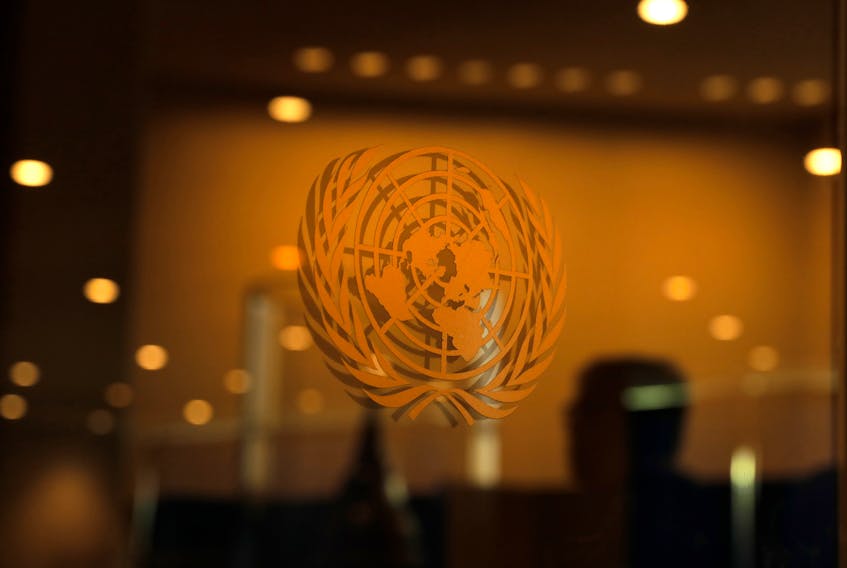Back in March, there was no shortage of critics breathlessly predicting that Canada’s bid for a non-permanent seat on the UN Security Council would fail miserably.
They pointed to Canada’s lacklustre efforts in international peacekeeping and climate change, an inability to showcase its multilateralist credentials and Justin Trudeau’s failure to push our candidacy in foreign capitals. We now know that their prognostications were right on the mark.
It is worth mentioning, though, that because of the novel coronavirus pandemic and a cratering global economy, this was no typical UN vote. The world of cascading crises made it exceedingly difficult for Ottawa to orchestrate a full-blown international campaign, to participate in the critical face-to-face meetings — and necessary diplomatic horse-trading — to secure a country’s support and to engage in the 11th-hour politicking sometimes needed to seal the deal.
Still, the Trudeau Liberals were confident that Canada would eventually prevail when the contest went to a second ballot. To add insult to injury, Canada lost on the first ballot (garnering only 108 votes) to Ireland (which secured 128 votes) — receiving fewer votes than UN-skeptic Stephen Harper’s failed bid in 2010 (which notched 114 votes).
(There was never any doubt that Norway would get the nod for the other seat from the Western European and Others Group or WEOG geographic bloc.)
The Liberal government attempted valiantly to put the best possible spin on what was undoubtedly an embarrassing defeat. As Trudeau remarked: “We forged new partnerships, we strengthened existing friendships and we laid a solid foundation for an even greater collaboration in the future. …Getting the seat was never an end in itself.”
So, why exactly was Canada unsuccessful again? What made this UN campaign little different from the disastrous 2010 outcome?
Notwithstanding the final result, it goes without saying that Canada’s UN Ambassador, Marc-André Blanchard, did a superb job of leading Canada’s team effort in New York. He had obviously worked hard at courting the various UN ambassadors from numerous countries and capitalizing on his networking over the last few years and his likable demeanour.
Even though the balloting is secret, it seems obvious that the regional voting blocs in Africa, Latin America and the Caribbean, the Middle East and Asia-Pacific generally did not come through for Ottawa. Much like the failed Harper bid, many of these countries chose to desert Canada at this critical moment.
Part of the problem is Canada’s placement in the WEOG geographic bloc, which is highly competitive, not always friendly toward Canada and loaded with attractive European candidates. It should properly be situated in the more hemispherically compatible Latin America and the Caribbean grouping. Perhaps this is something that Canada will look into changing in the coming years.
Moreover, one should not forget that both Norway and Ireland had been working on their Security Council bids for more than 10 years, while Canada had been actively engaged on the file for only four. In addition, those successful countries spent more money on their respective campaigns when compared to Canada’s $2.3 million outlay.
Some commentators have suggested that China, in light of its enormously strained relationship with Ottawa, pressured member states in the developing world to vote against Canada. Maybe. But I don’t think that was a key explanatory factor.
What we do know is that there’s no disputing the fact that Canada’s international engagement lately — on the development assistance front and the climate change issue — did not serve to bring sufficient numbers of member states to our side. They simply weren’t convinced that we were doing enough on both counts.
Similarly, our record on international peace support missions — especially when compared to the stellar performance of Ireland — left a sour taste in the mouths of UN members. And they were less than impressed with Canada’s relatively small personnel contribution to the admittedly challenging Mali mission in Africa, the short duration of its commitment and its unwillingness to extend its participation in the face of multiple UN requests.
Yes, of course, domestic politics were at play here for Trudeau — reaching back to his 2015 pledge that “Canada is back” on the world stage. There is no doubt that he had expended a great deal of diplomatic capital in trying to secure this UN seat. That is why this unsuccessful bid is a significant blow to his prime ministership, his personal political standing and Canada’s reputation internationally.
The failed bid highlights the fact that our middle power status does not have the cachet that it once had. Indeed, the most difficult realization perhaps to come out of this is that Canada’s voice in the world matters a lot less than many of us had come to believe.
Peter McKenna is professor of political science at the University of Prince Edward Island in Charlottetown.









